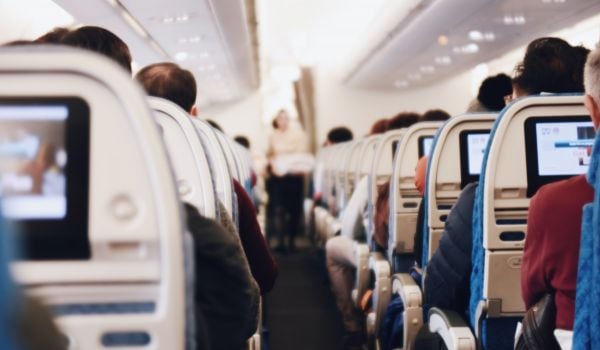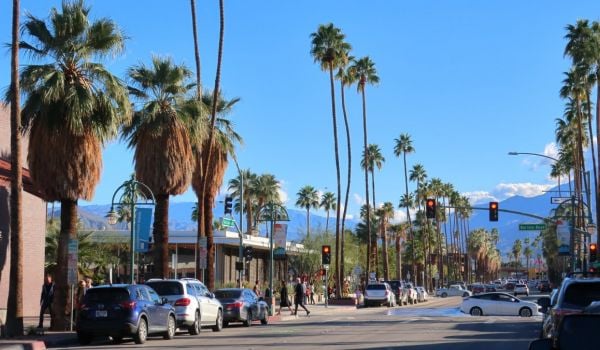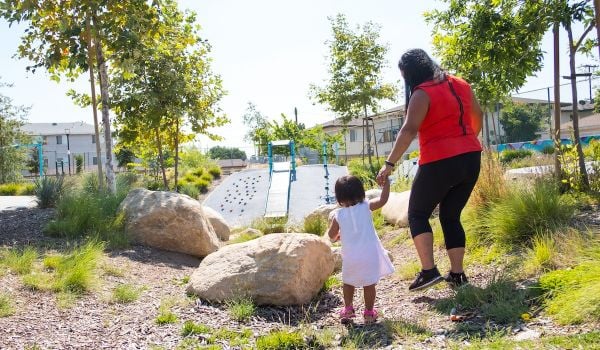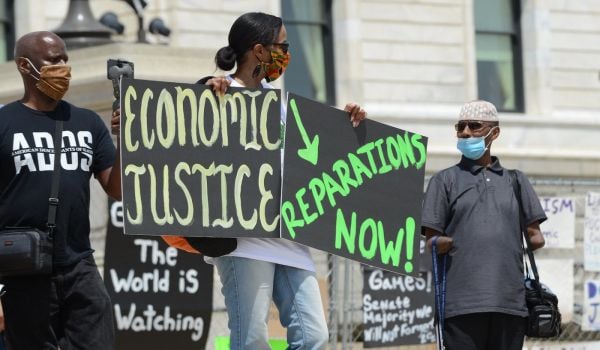Editor’s note: On Oct 4, 2021, Gov. Gavin Newsom signed #AB1177, the California Public Banking Option Act, into law. The bill sets up a commission to explore creating the types of bank accounts described in this article. The program name has been renamed from BankCal to CalAccount, as well.
Sofia Lima aspires to be a teacher again. Four years ago, she’d just finished her first year as a teacher in Guatemala, when, due to circumstances beyond her control, she decided it would be best to uproot her entire life and move to the United States.
Lima now lives in San Francisco’s Mission District, a long-established Latino neighborhood. She works two fast food jobs to support herself and her two kids. She’d like to get started with English classes and other requirements to become a teacher here.
It would be a lot easier if she had a bank account. She’s tried to open one, but hasn’t found a bank that’s willing to work with the identification she can provide. Without a bank account, Lima says through an interpreter, she has to pay $12 to cash her weekly paycheck — that’s nearly $50 a month that would help with the rent, food, and maybe save some toward English language classes or other teaching prerequisites.
“It would also save me time,” Lima says. “I would be able to have a debit card, pay money that way instead of having to travel so much, taking two busses to cash my check with my kids.”
Lima and her kids are one in a million — literally, in the state of California, around one million households are unbanked, according to the FDIC. It’s a problem that hits Black and brown households especially hard — 15 percent of Black households and 14 percent of Hispanic households in California are unbanked, while just 2.4 percent of white households and 1.8 percent of Asian households in California are unbanked.
The California State Assembly recently voted to approve a plan to create a state-branded bank account that would be offered to all Californians regardless of income, wealth, race or ethnicity, or immigration status. Lima spoke out in support of the program during a May 2021 virtual event with state legislators.
“This law would help me a lot,” Lima says.
Dubbed the “BankCal” program, the accounts would come with a debit card, no fees, no overdraft, no minimum balances, direct deposit and other perks. The program would contract with private banks and credit unions to actually hold the deposits and facilitate transactions, but the state would set the terms and serve as the public face for BankCal.
“I think there’s a lot of questions people have raised about whether the state is a trusted partner to the communities we’re talking about, but I think compared to big banks, it is,” says Paulina Gonzalez-Brito, executive director of the California Reinvestment Coalition, one of the three main organizations pushing for AB 1177, the bill to create the BankCal program. After passing the State Assembly, the bill is now under consideration in the State Senate.
Across the entire country, nearly seven million households are unbanked, according to the FDIC’s 2019 Survey of Household Use of Banking and Financial Services.
According to the 2017 edition of the biannual FDIC survey, an estimated 24 million households are “underbanked,” meaning at least one household member has a checking or savings account but in the previous 12 months the household also used money orders, check cashing, international remittances, payday loans, refund anticipation loans, rent-to-own services, pawn shop loans, or auto title loans. The FDIC eliminated the “underbanked” category from the 2019 edition, prompting a few Senators to accuse the FDIC of playing politics with its data reporting.
A majority of unbanked households say they aren’t interested at all in having a bank account, according to the FDIC survey. The most common reason people give for not having a bank account is not having enough money to meet minimum balance requirements. But not far behind were high or unpredictable fees, privacy concerns, and just not trusting banks. In California, 15 percent of unbanked households said they did not have a bank account because they did not trust banks with their money.
“Our communities are lacking in that trust, and it’s not because of anything other than the experiences they’ve had with those institutions,” says Gonzalez-Brito. “[Banks] either don’t exist in those communities, or they’ve had bad overdraft experiences, or they work in the cash economy and they go in and try to deposit a bunch of cash and they’re treated badly or treated as criminals, or they just don’t feel welcome or they’re not welcome because they don’t have a social security number. There’s a whole list of reasons why our community doesn’t trust financial institutions, and they’re valid reasons.”
With its no-fee, no-minimum accounts, BankCal would attempt to restore that trust.
The idea for BankCal was partly inspired by the CalSavers program, a state-sponsored, state-branded retirement savings program created in 2016. California employers that do not sponsor a retirement plan are required to participate in CalSavers. The program provides an automatic enrollment individual retirement account, or IRA, with no employer fees or fiduciary liability for employers. It operates at no taxpayer expense, and the retirement savings are professionally managed by private sector financial firms, with oversight from a public board chaired by the State Treasurer.
The SEIU, which played a major role in designing and advocating for CalSavers, first approached California Reinvestment Program and the California Public Banking Alliance about adapting the CalSavers model for basic banking and financial services.
“It seemed like a natural progression, it gives people a comprehensive personal financial system, a secure system that won’t take advantage of them.” says Gonzalez-Brito.
Similar to CalSavers, AB 1177 would create a board to oversee the BankCal program. Under the latest version of the bill, which may be amended later in the State Senate, the board would have nine members, including the state treasurer and the commissioner of the Department of Financial Protection and Innovation (which regulates banks in California), an individual with banking expertise, an individual with expertise in economic and racial justice and cultural competence, an employee representative, a small business representative, an advocate for a mission-aligned banking institution, a public banking advocate, and a consumer representative.
The board would be charged with designing and structuring the BankCal Program to “maximize participation and ease of use for account holders,” while also “encouraging partnership rather than competition with credit unions and other local financial institutions and public banks when financially and administratively feasible and appropriate.”
Under the current proposal, the board would have the discretion to create partnerships with anywhere from a small number of larger financial institutions to serve all BankCal account holders or a larger network of smaller institutions. Gonzalez-Brito envisions the latter.
The law also requires the board to submit an annual report that includes the number of accounts opened and closed and account holder demographics.
Gonzalez-Brito says one of the problems with existing low-cost or no-cost account programs from banks is that little to no data is made available to the public to demonstrate uptake of those programs. Worse yet, Gonzalez-Brito says most banks do very little, if any, advertising of those offerings, and when people do try to apply for low-cost or no-cost accounts, they’re bombarded with offers to add “overdraft protection” or other up-selling of different services.
There are costs associated with setting up and administering the proposed BankCal program. Preliminary estimates from the state legislature say it would cost about $5 million a year to operate, and AB 1177 proposes that the first six years of funding would come out of the state’s budget. It could also be funded by philanthropic or corporate donations.
Eventually, though, it’s envisioned that debit card swipe fees paid by merchants would cover the costs of the BankCal program over the long-term — the same swipe fees that currently go to banks or card payment processing companies. In 2019, swipe fees nationwide totaled $24 billion.
Before voting to approve AB 1177, the Assembly’s Banking and Finance Committee tacked on an amendment requiring a market analysis before any state dollars are spent on the program. The analysis would determine if the potential market for the program is large enough to ensure self-funding after six years.
Banking industry organizations oppose the bill. They argue the state shouldn’t get into the “very complex business of banking,” even though AB 1177 proposes that the state partner with existing private financial institutions — not exactly “getting into” banking in the purest sense. The California Bankers Association did not respond to a request for comment from Next City.
“Everybody loves a free market until the public sector gets involved and creates a product that competes with them,” says Gonzalez-Brito.
This article is part of The Bottom Line, a series exploring scalable solutions for problems related to affordability, inclusive economic growth and access to capital. Click here to subscribe to our Bottom Line newsletter.

Oscar is Next City's senior economic justice correspondent. He previously served as Next City’s editor from 2018-2019, and was a Next City Equitable Cities Fellow from 2015-2016. Since 2011, Oscar has covered community development finance, community banking, impact investing, economic development, housing and more for media outlets such as Shelterforce, B Magazine, Impact Alpha and Fast Company.
Follow Oscar .(JavaScript must be enabled to view this email address)


















